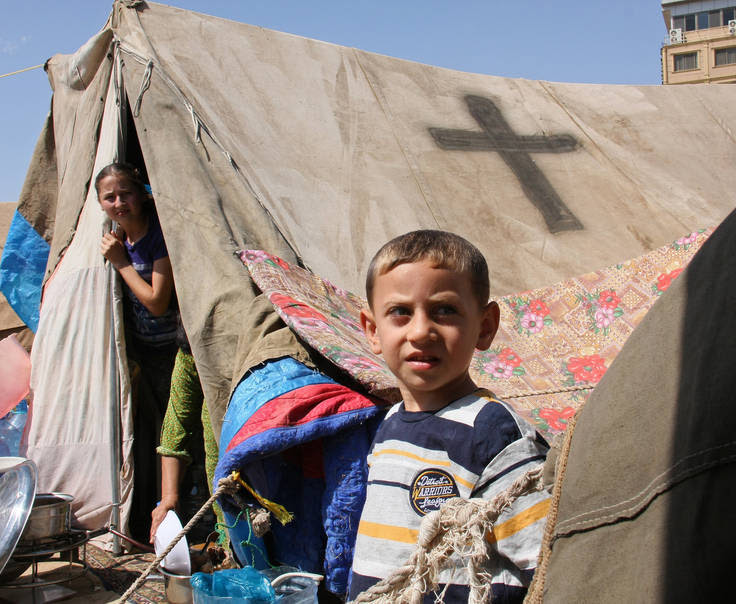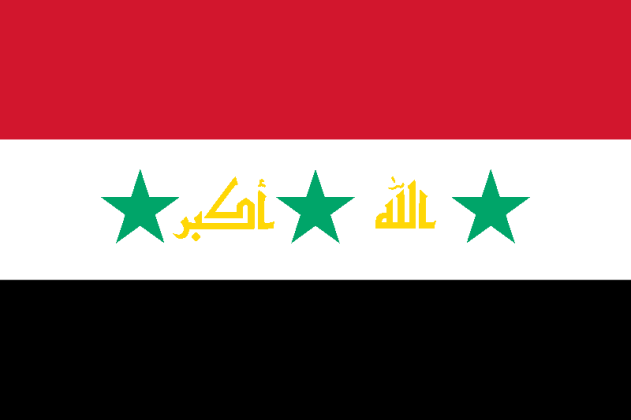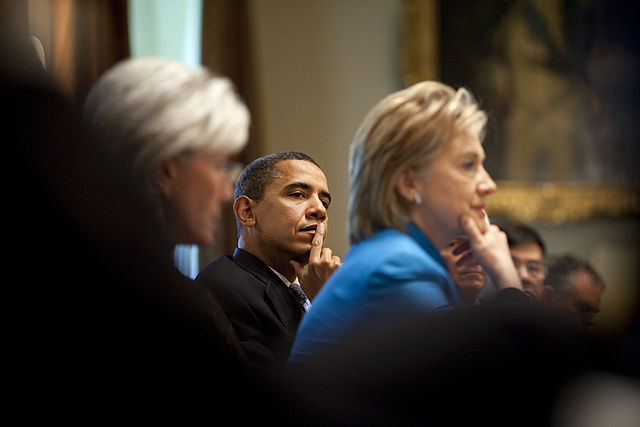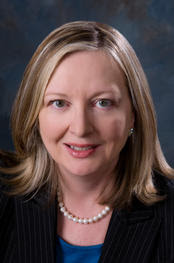U.S. State Department Denies Middle East Christians Refugee Status
 The NER November edition interview with U.S. Iraqi Christian leader Joseph T. Kassab, “Iraqi Christians Face Extinction” is illustrated by the experience of Syrian Christians Nina Shea of the Center for Religious Freedom writes about them in a National Review on-line article published, today, “The State Department Turns Its Back on Syrian Christians and Other Non-Muslim Refugees.” Shea’s bottom line tells why so few imperiled Iraqi and Syrian Christians and other non- Muslim minorities have been admitted by our State Department for asylum as humanitarian refugees. They are largely ‘urban refugees’ as Kassab pointed out in our Iraqi Christian interview. They don’t qualify under UN rules that our State Department slavishly adheres to. One of our first NER articles in January 2008 drew attention to that problem, “Why Is the UN Determining Who Becomes Humanitarian Refugees in the US?”
The NER November edition interview with U.S. Iraqi Christian leader Joseph T. Kassab, “Iraqi Christians Face Extinction” is illustrated by the experience of Syrian Christians Nina Shea of the Center for Religious Freedom writes about them in a National Review on-line article published, today, “The State Department Turns Its Back on Syrian Christians and Other Non-Muslim Refugees.” Shea’s bottom line tells why so few imperiled Iraqi and Syrian Christians and other non- Muslim minorities have been admitted by our State Department for asylum as humanitarian refugees. They are largely ‘urban refugees’ as Kassab pointed out in our Iraqi Christian interview. They don’t qualify under UN rules that our State Department slavishly adheres to. One of our first NER articles in January 2008 drew attention to that problem, “Why Is the UN Determining Who Becomes Humanitarian Refugees in the US?”
Note this exchange with Kassab in our interview about the quandary facing Iraqi Christian ‘urban refugees’ in the Kurdish Regional Government:
Gordon: What are the current conditions of Iraqi Christian refugee camps in the Kurdish Region and what kinds of assistance are they receiving?
Kassab: The current conditions for Iraqi Christian IDPs are very chaotic and horrific. The Kurdish Regional Government (KRG) is doing its best to provide for them. However, they are unable to absorb more than 3 million refugees from Syria and Yazidis in their region. The Iraqi government has done nothing for its citizen IDPs. Corruption is very high among the Iraqi government officials and that by itself makes distribution of relief to its IDPs very poor. The UN and humanitarian local and international NGOs are unable to function properly due to lack of coordination and efficient capacity. Therefore people are losing hope and are availing of any opportunity to escape abroad. Christians are urban refugees-IDPs meaning that they do not live in UN refugee camps. Instead they seek shelter with relatives, in unfinished buildings, parks and churches. Overall, this support can be very short lived because volunteering always has a sunset.
Shea cites the paltry admissions of Syrian Christians and other minorities by the State Department Bureau of Population, Refugees and Migration:
Over the past five years of Syria’s civil war, the United States has admitted a grand total of 53 Syrian Christian refugees, a loneYazidi, and fewer than ten Druze, Bahá’ís, and Zoroastrians combined. That so few of the Syrian refugees coming here are non-Muslim minorities is due to American reliance on a United Nations refugee-resettlement program that disproportionately excludes them. Past absolute totals of Syrian refugees to the U.S. under this program were small, but as the Obama administration now ramps up refugee quotas by tens of thousands, it would be unconscionable to continue with a process that has consistently forsaken some of the most defenseless and egregiously persecuted of those fleeing Syria.
The gross underrepresentation of the non-Muslim communities in the numbers of Syrian refugees into the U.S. is reflected year after year in the State Department’s public records. They show, for example, that while Syria’s largest non-Muslim group — Christians of the various Catholic, Orthodox, and Protestant traditions — constituted 10 percent of Syria’s population before the war, they are only 2.6 percent of the 2,003 Syrian refugees that the United States has accepted since then.
Here is the explanation given by a State Department official concerned about religious minorities:
In an e-mail to me, Knox Thames, the State Department’s new special adviser for religious minorities, wrote that “many minorities have not entered the UN system because they are urban refugees.” That is, because they live far from the remote U.N. camps and aid centers, they lack the information and access to register. And, as is widely known, many non-Muslim refugees try hard to avoid these camps.
Like Iraqi Christians who opt for church-run camps over better-serviced U.N. ones, Syrian minorities fear hostility from majority groups inside the latter. According to British media, a terrorist defector asserted that militants enter U.N. camps to assassinate and kidnap Christians. An American Christian aid group reported that the U.N. camps are “dangerous” places where ISIS, militias, and gangs traffic in women and threaten men who refuse to swear allegiance to the caliphate. Such intimidation is also reportedly evident in migrant camps in Europe, leading the German police union to recommend separate shelters for Christian and Muslim migrant groups.
Shea noted the response by the current UN High Commissioner for Refugees at a recent Washington conference:
At a discussion of the U.S. Commission on International Religious Freedom on October 27, I directly questioned U.N. High Commissioner António Guterres, an otherwise ardent advocate of diversity, about the short shrift that his office has given all Syria’s non-Muslim minority communities. His rambling reply failed to reassure. He said that, while some individuals should be resettled, as a Catholic he felt that Christians should not leave, because they’re part of the “DNA of the Middle East”; moreover, he said, Lebanon’s former president asked him not to resettle the Christians. Was he revealing a policy of religious bias and unlawful geo-political calculations for U.N. refugee determinations? Or was his sentiment a smokescreen behind which he was trying to flick off an issue he regarded as insignificant?
Like Iraqi Christian advocate Kassab, a prominent Chaldean Bishop in the Western US, Sarho Jammo, is “imploring that Christians be included in the new allotments for humanitarian refugees from the Middle East issued by the Administration.
Shea concludes:
According to a recent UNHCR posting, 19,000 Syrians picked straight from “refugee camps in Turkey, Lebanon and Jordan” have received U.N. approval and are awaiting resettlement in the U.S. In October, President Obama ordered their expedited admission. Without further action, however, only token numbers of non-Muslim minorities will be among those rescued. George Carey, former archbishop of Canterbury, called it right about the Christian refugees and his words equally apply to Syria’s other non-Muslim communities: They are being “left at the bottom of the heap.”
It is clear from both our NER interview with Kassab and Shea that without Congress amending the Refugee Act of 1980 the State Department is fostering the extinction of Middle East Christians by adhering to UNHCR allotment criteria. If they cannot be provided sanctuary and asylum in the US, under the current UNHCR definitions, then special waivers should be granted lifting those restrictions to utilize the special P2/P3 Family Reunification Visa program.
EDITORS NOTE: This column originally appeared in the New English Review.







